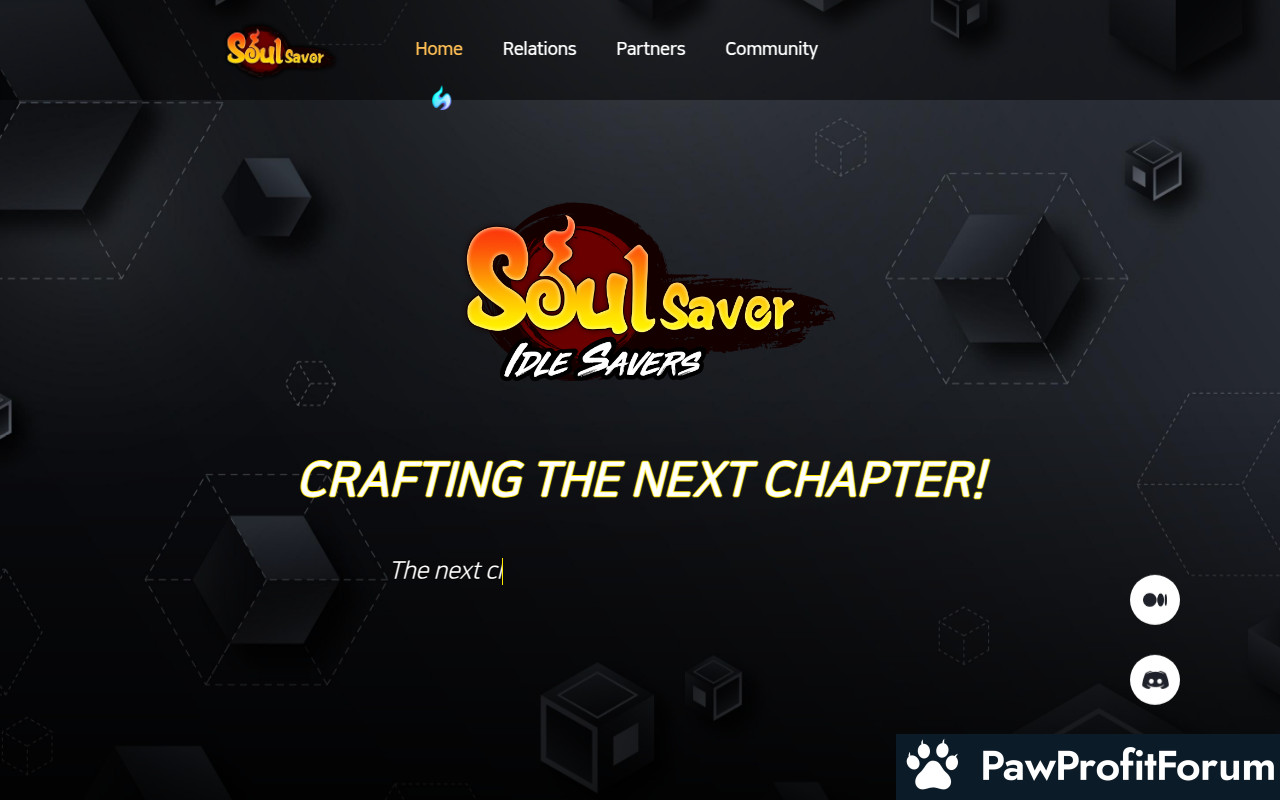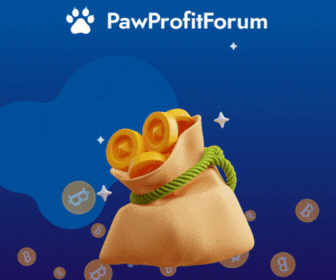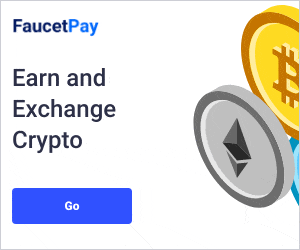Soulsaver is a P2E game ecosystem established with NFT as the parameter. P2E game Soulsaver that Soulsaver Project Team developed is a blockchain-based idle strategic simulation RPG inspired by the existing online game Ghost Online. The project team has combined idle strategic simulation genre P2E, which is optimized for P2E, to the IP of Ghost Online as the base of development of Soulsaver. With this, the team intends to develop a blockchain-based ecosystem that services popular P2E games that anyone can easily and conveniently enjoy it.
The core of Soulsaver's ecosystem revolves around NFTs, which serve as the primary parameter within the game. Players can engage in various activities, leveraging these NFTs to enhance their gameplay and earn rewards. The game's idle nature ensures that players can make progress even when they are not actively playing, adding a layer of convenience and accessibility.
SOUL, the native token of the Soulsaver ecosystem, plays a crucial role as the key currency within the game. It facilitates transactions, rewards, and various in-game activities, creating a seamless economic system that enhances the overall gaming experience. The development team behind Soulsaver aims to create a blockchain-based ecosystem that not only appeals to gamers but also integrates the benefits of decentralized finance and digital assets.
The strategic simulation aspect of Soulsaver adds depth to the gameplay, requiring players to think critically and plan their moves carefully. This combination of strategy and idle mechanics makes the game engaging and rewarding, catering to both casual and dedicated gamers. The integration of blockchain technology ensures transparency, security, and true ownership of in-game assets, setting Soulsaver apart from traditional gaming experiences.
Soulsaver is a blockchain-based idle strategic simulation RPG, drawing inspiration from the previously serviced Ghost Online game. This integration of a familiar IP with blockchain technology creates a unique gaming experience where players can engage in a play-to-earn (P2E) model. In this model, players earn rewards in the form of NFTs (Non-Fungible Tokens) and cryptocurrency, which can be traded or sold within the ecosystem.
The Ethereum blockchain, on which Soulsaver is built, employs a consensus mechanism known as Proof of Stake (PoS). This mechanism is crucial in preventing attacks from bad actors. In PoS, validators are chosen to create new blocks and confirm transactions based on the number of tokens they hold and are willing to "stake" as collateral. This system makes it economically unfeasible for malicious entities to attack the network, as they would need to control a significant portion of the total token supply.
In addition to its security features, the Ethereum blockchain supports smart contracts, which are self-executing contracts with the terms of the agreement directly written into code. These smart contracts automate various processes within the Soulsaver ecosystem, such as the distribution of rewards and the execution of in-game transactions. This automation reduces the need for intermediaries, ensuring that the system runs smoothly and efficiently.
Soulsaver's P2E game ecosystem is designed to be accessible and enjoyable for a wide audience. The idle strategic simulation genre is particularly well-suited for P2E, as it allows players to earn rewards even when they are not actively playing the game. This passive earning potential makes the game appealing to both casual and dedicated gamers.
NFTs play a significant role in the Soulsaver ecosystem. These unique digital assets represent in-game items, characters, and other elements that players can own, trade, and sell. The use of NFTs ensures that each item is unique and cannot be replicated, adding value and rarity to the in-game assets. This integration of NFTs with the P2E model creates a dynamic and engaging gaming experience where players can truly own their in-game achievements.
The development team behind Soulsaver has leveraged the IP of Ghost Online to create a familiar yet innovative gaming experience. By combining the idle strategic simulation genre with blockchain technology, they have created a game that is both nostalgic and forward-thinking. This blend of old and new elements ensures that Soulsaver appeals to a broad audience, from long-time fans of Ghost Online to newcomers interested in blockchain gaming.
The Soulsaver ecosystem is designed to be user-friendly, allowing players of all ages and technical backgrounds to participate. The game's interface is intuitive, and the integration of blockchain technology is seamless, ensuring that players can focus on the gameplay rather than the underlying technology. This accessibility is a key factor in the game's appeal, as it lowers the barrier to entry for new players.
The technology behind Soulsaver is a testament to the potential of blockchain in gaming. By leveraging the security and transparency of the Ethereum blockchain, the game provides a safe and engaging environment for players to earn rewards and interact with each other. The integration of NFTs and the P2E model further enhances the gaming experience, creating a dynamic and rewarding ecosystem for all participants.
One of the primary applications of Soulsaver is its role within the P2E game ecosystem. Players can earn SOUL by participating in the game, which is designed to be low-fatigue, allowing for extended gameplay without excessive strain. This makes it accessible to both younger and older players who may have different levels of gaming experience and stamina.
Another significant application is the use of Non-Fungible Tokens (NFTs) within the game. Players can collect, trade, and utilize NFTs to enhance their gaming experience. These NFTs can represent various in-game assets, such as characters, items, or abilities, providing a unique and personalized gaming experience. The integration of NFTs also allows players to have true ownership of their digital assets, which can be traded or sold outside the game.
Soulsaver also facilitates trading on cryptocurrency exchanges. This means that players and investors can buy, sell, or trade SOUL, providing liquidity and potential financial benefits. Additionally, participating in airdrops is another application, where users can receive free tokens as part of promotional events or community engagement strategies.
The combination of these applications—earning through gameplay, utilizing NFTs, and engaging in trading and airdrops—creates a comprehensive ecosystem that leverages blockchain technology to offer both entertainment and financial opportunities.
The inception of Soulsaver began with the development of the game by the SOULSAVER Project team. This team aimed to create a blockchain-based ecosystem that would offer popular P2E games, ensuring that they are accessible and enjoyable for a broad audience. The creation of the SOUL token (SOUL) was a pivotal moment, establishing it as the key currency within the game’s ecosystem.
The focus on providing enjoyable gameplay for users was evident from the outset. Soulsaver's gameplay mechanics, which combine idle strategic simulation with RPG elements, were designed to be both engaging and rewarding. This approach was intended to attract a diverse player base, from casual gamers to dedicated blockchain enthusiasts.
In the development phase, the team leveraged the intellectual property (IP) of Ghost Online, a well-known online game, as the foundation for Soulsaver. This strategic decision allowed them to build on an existing fan base and incorporate familiar elements into the new P2E format. The integration of NFTs into the game further enhanced the user experience, offering unique in-game assets that players could own and trade.
The launch of the game marked a significant milestone, bringing the vision of a blockchain-based P2E game to life. Players could now immerse themselves in the Soulsaver universe, utilizing SOUL tokens to enhance their gameplay experience. The game’s idle strategic simulation aspect, optimized for P2E, provided a unique twist, allowing players to earn rewards even when not actively playing.
Throughout its development and launch, the SOULSAVER Project team remained committed to refining and expanding the game. Regular updates and improvements were made to ensure the game remained engaging and relevant in the fast-evolving blockchain gaming landscape. The team’s dedication to creating a seamless and enjoyable user experience was evident in their continuous efforts to enhance the game’s features and mechanics.
Soulsaver’s journey is a testament to the potential of blockchain technology in revolutionizing the gaming industry. By combining the strategic elements of idle simulation with the rewarding aspects of P2E, Soulsaver has established itself as a noteworthy player in the blockchain gaming ecosystem.
What is Soulsaver?
Soulsaver (SOUL) emerges as a fascinating blend of blockchain technology and gaming, offering a unique experience in the world of Play-to-Earn (P2E) ecosystems. Inspired by the online game Ghost Online, Soulsaver is a blockchain-based idle strategic simulation RPG that incorporates the intriguing themes of ghosts and martial arts. This game is designed to be user-friendly, allowing players to grow, mine, and play with minimal effort, making it an ideal choice for those who prefer low-fatigue gaming experiences.The core of Soulsaver's ecosystem revolves around NFTs, which serve as the primary parameter within the game. Players can engage in various activities, leveraging these NFTs to enhance their gameplay and earn rewards. The game's idle nature ensures that players can make progress even when they are not actively playing, adding a layer of convenience and accessibility.
SOUL, the native token of the Soulsaver ecosystem, plays a crucial role as the key currency within the game. It facilitates transactions, rewards, and various in-game activities, creating a seamless economic system that enhances the overall gaming experience. The development team behind Soulsaver aims to create a blockchain-based ecosystem that not only appeals to gamers but also integrates the benefits of decentralized finance and digital assets.
The strategic simulation aspect of Soulsaver adds depth to the gameplay, requiring players to think critically and plan their moves carefully. This combination of strategy and idle mechanics makes the game engaging and rewarding, catering to both casual and dedicated gamers. The integration of blockchain technology ensures transparency, security, and true ownership of in-game assets, setting Soulsaver apart from traditional gaming experiences.
What is the technology behind Soulsaver?
The technology behind Soulsaver (SOUL) is a fascinating blend of blockchain innovation and gaming. At its core, Soulsaver operates on the Ethereum blockchain, which is known for its robust security and smart contract capabilities. This foundation ensures that transactions and interactions within the Soulsaver ecosystem are transparent, secure, and immutable.Soulsaver is a blockchain-based idle strategic simulation RPG, drawing inspiration from the previously serviced Ghost Online game. This integration of a familiar IP with blockchain technology creates a unique gaming experience where players can engage in a play-to-earn (P2E) model. In this model, players earn rewards in the form of NFTs (Non-Fungible Tokens) and cryptocurrency, which can be traded or sold within the ecosystem.
The Ethereum blockchain, on which Soulsaver is built, employs a consensus mechanism known as Proof of Stake (PoS). This mechanism is crucial in preventing attacks from bad actors. In PoS, validators are chosen to create new blocks and confirm transactions based on the number of tokens they hold and are willing to "stake" as collateral. This system makes it economically unfeasible for malicious entities to attack the network, as they would need to control a significant portion of the total token supply.
In addition to its security features, the Ethereum blockchain supports smart contracts, which are self-executing contracts with the terms of the agreement directly written into code. These smart contracts automate various processes within the Soulsaver ecosystem, such as the distribution of rewards and the execution of in-game transactions. This automation reduces the need for intermediaries, ensuring that the system runs smoothly and efficiently.
Soulsaver's P2E game ecosystem is designed to be accessible and enjoyable for a wide audience. The idle strategic simulation genre is particularly well-suited for P2E, as it allows players to earn rewards even when they are not actively playing the game. This passive earning potential makes the game appealing to both casual and dedicated gamers.
NFTs play a significant role in the Soulsaver ecosystem. These unique digital assets represent in-game items, characters, and other elements that players can own, trade, and sell. The use of NFTs ensures that each item is unique and cannot be replicated, adding value and rarity to the in-game assets. This integration of NFTs with the P2E model creates a dynamic and engaging gaming experience where players can truly own their in-game achievements.
The development team behind Soulsaver has leveraged the IP of Ghost Online to create a familiar yet innovative gaming experience. By combining the idle strategic simulation genre with blockchain technology, they have created a game that is both nostalgic and forward-thinking. This blend of old and new elements ensures that Soulsaver appeals to a broad audience, from long-time fans of Ghost Online to newcomers interested in blockchain gaming.
The Soulsaver ecosystem is designed to be user-friendly, allowing players of all ages and technical backgrounds to participate. The game's interface is intuitive, and the integration of blockchain technology is seamless, ensuring that players can focus on the gameplay rather than the underlying technology. This accessibility is a key factor in the game's appeal, as it lowers the barrier to entry for new players.
The technology behind Soulsaver is a testament to the potential of blockchain in gaming. By leveraging the security and transparency of the Ethereum blockchain, the game provides a safe and engaging environment for players to earn rewards and interact with each other. The integration of NFTs and the P2E model further enhances the gaming experience, creating a dynamic and rewarding ecosystem for all participants.
What are the real-world applications of Soulsaver?
Soulsaver (SOUL) is a cryptocurrency integrated into a Play-to-Earn (P2E) game ecosystem, blending the themes of ghosts and martial arts. This blockchain-based idle strategic simulation RPG, inspired by the online game Ghost Online, offers several real-world applications that cater to a diverse audience.One of the primary applications of Soulsaver is its role within the P2E game ecosystem. Players can earn SOUL by participating in the game, which is designed to be low-fatigue, allowing for extended gameplay without excessive strain. This makes it accessible to both younger and older players who may have different levels of gaming experience and stamina.
Another significant application is the use of Non-Fungible Tokens (NFTs) within the game. Players can collect, trade, and utilize NFTs to enhance their gaming experience. These NFTs can represent various in-game assets, such as characters, items, or abilities, providing a unique and personalized gaming experience. The integration of NFTs also allows players to have true ownership of their digital assets, which can be traded or sold outside the game.
Soulsaver also facilitates trading on cryptocurrency exchanges. This means that players and investors can buy, sell, or trade SOUL, providing liquidity and potential financial benefits. Additionally, participating in airdrops is another application, where users can receive free tokens as part of promotional events or community engagement strategies.
The combination of these applications—earning through gameplay, utilizing NFTs, and engaging in trading and airdrops—creates a comprehensive ecosystem that leverages blockchain technology to offer both entertainment and financial opportunities.
What key events have there been for Soulsaver?
Soulsaver, a blockchain-based idle strategic simulation RPG, has carved a niche in the P2E (Play-to-Earn) gaming ecosystem. Developed by the SOULSAVER Project team, it draws inspiration from the online game Ghost Online, integrating NFT elements to enhance gameplay and user engagement.The inception of Soulsaver began with the development of the game by the SOULSAVER Project team. This team aimed to create a blockchain-based ecosystem that would offer popular P2E games, ensuring that they are accessible and enjoyable for a broad audience. The creation of the SOUL token (SOUL) was a pivotal moment, establishing it as the key currency within the game’s ecosystem.
The focus on providing enjoyable gameplay for users was evident from the outset. Soulsaver's gameplay mechanics, which combine idle strategic simulation with RPG elements, were designed to be both engaging and rewarding. This approach was intended to attract a diverse player base, from casual gamers to dedicated blockchain enthusiasts.
In the development phase, the team leveraged the intellectual property (IP) of Ghost Online, a well-known online game, as the foundation for Soulsaver. This strategic decision allowed them to build on an existing fan base and incorporate familiar elements into the new P2E format. The integration of NFTs into the game further enhanced the user experience, offering unique in-game assets that players could own and trade.
The launch of the game marked a significant milestone, bringing the vision of a blockchain-based P2E game to life. Players could now immerse themselves in the Soulsaver universe, utilizing SOUL tokens to enhance their gameplay experience. The game’s idle strategic simulation aspect, optimized for P2E, provided a unique twist, allowing players to earn rewards even when not actively playing.
Throughout its development and launch, the SOULSAVER Project team remained committed to refining and expanding the game. Regular updates and improvements were made to ensure the game remained engaging and relevant in the fast-evolving blockchain gaming landscape. The team’s dedication to creating a seamless and enjoyable user experience was evident in their continuous efforts to enhance the game’s features and mechanics.
Soulsaver’s journey is a testament to the potential of blockchain technology in revolutionizing the gaming industry. By combining the strategic elements of idle simulation with the rewarding aspects of P2E, Soulsaver has established itself as a noteworthy player in the blockchain gaming ecosystem.
Who are the founders of Soulsaver?
Soulsaver (SOUL) emerges as a P2E game ecosystem, intricately designed with NFTs at its core. The creators behind this innovative project are the SOULSAVER Project team. This team has ingeniously blended the idle strategic simulation genre with the IP of Ghost Online, crafting a blockchain-based idle strategic simulation RPG. Despite their significant contributions, the individual identities of the founders remain undisclosed. The team is actively engaged in developing their P2E game ecosystem and NFT marketplace, having recently secured funding to further their ambitious goals.| Website | idlesoulsavers.io/ |
| Website | idle-soulsaver.gitbook.io/ |
| Socials | twitter.com/IDLESOULSAVER |
| Socials | github.com/soulsaver2022 |
| Socials | t.me/IdleSoulSaver |
| Contracts | 0x992D...8c66F6 |
| Audits | https://cmc.certik-skynet.com/redirect?project=soulsaver |
| Explorers | etherscan.io/token/0x992D339532A9C42F1b0E59A57e95F38da38c66F6 |










